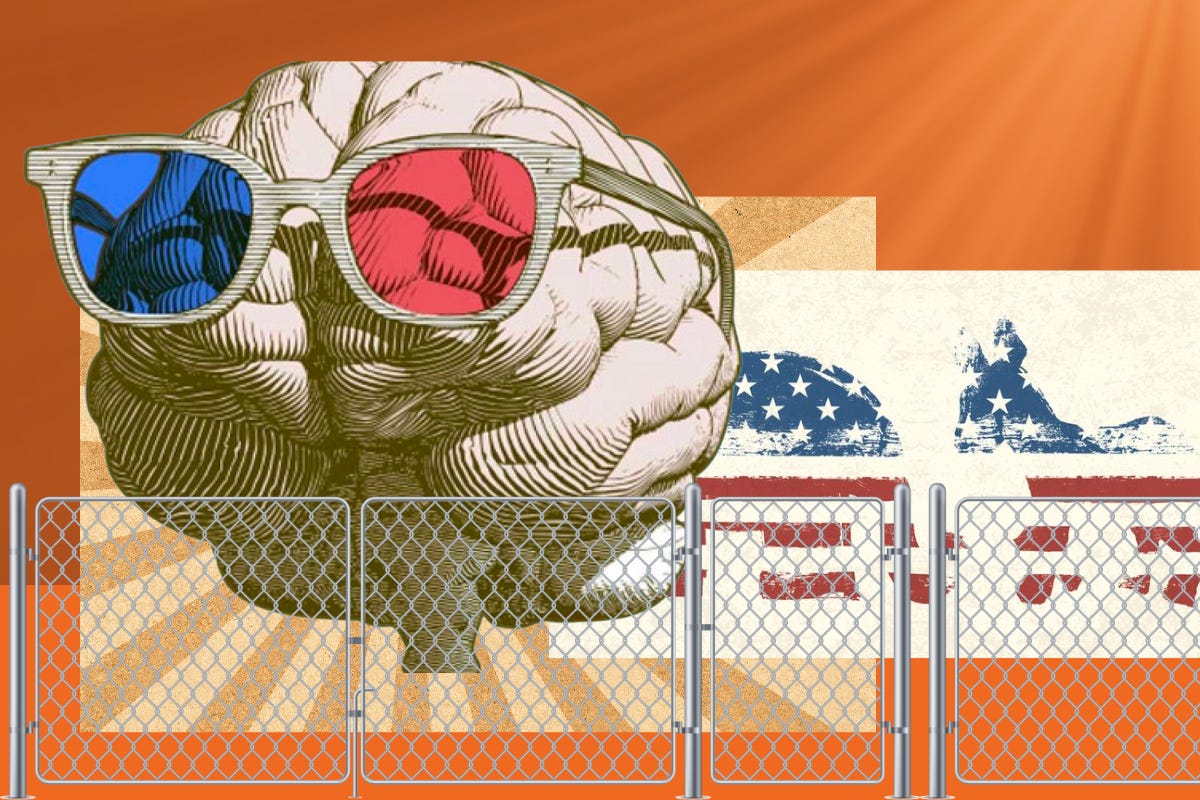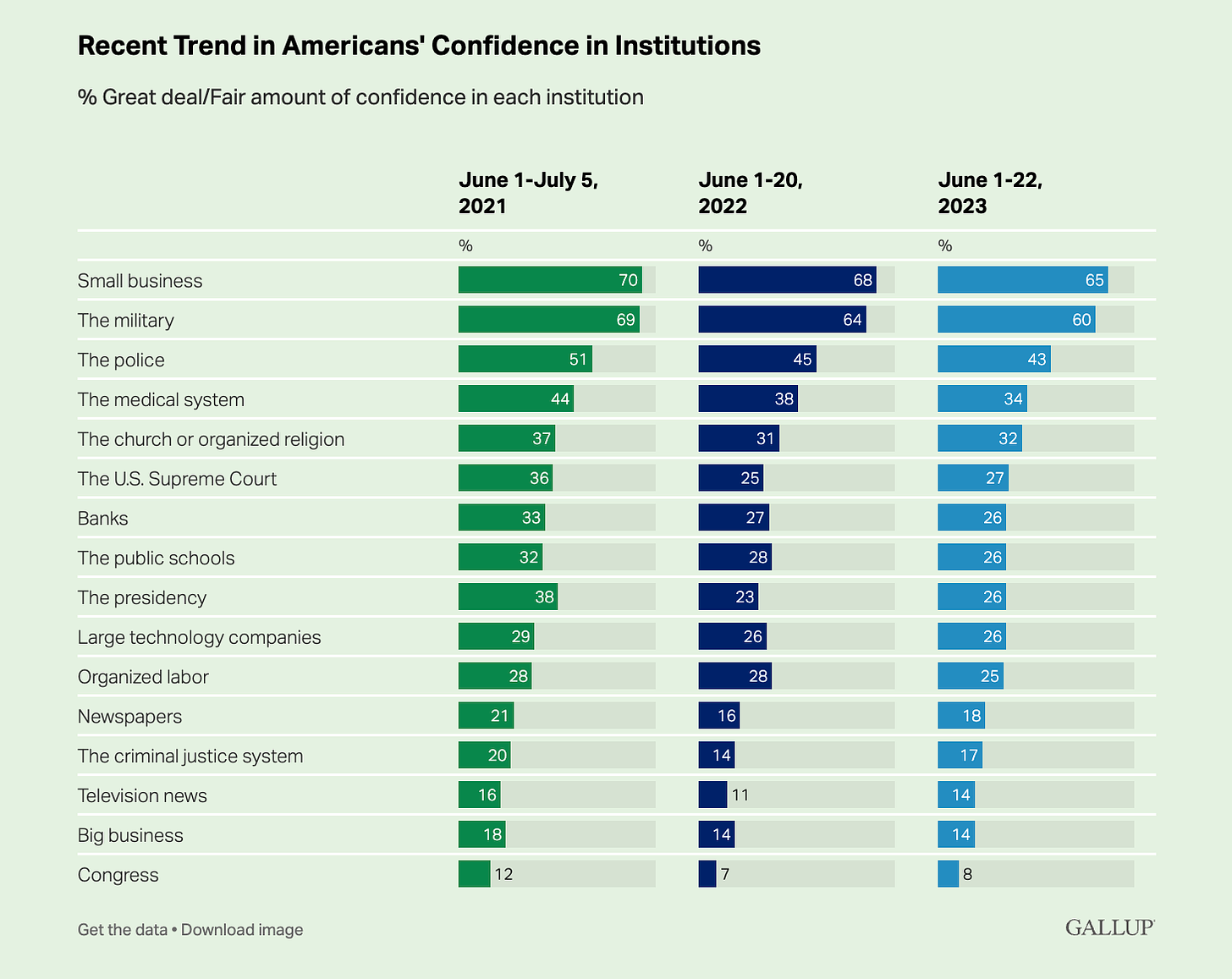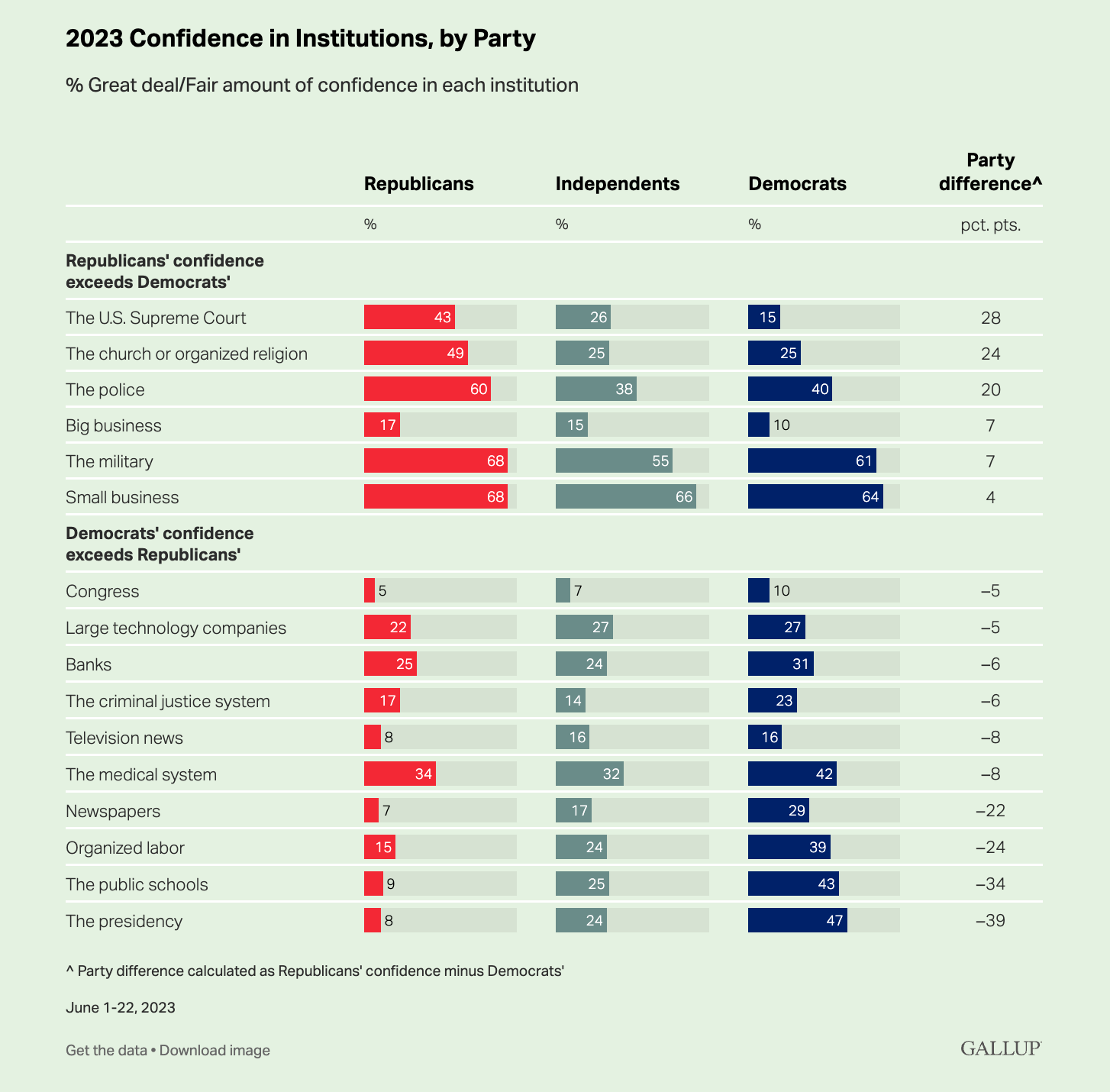Education is in the tank. It won't stay there.
Quick fix policies and partisan politics are a drag on educational progress. Asking good questions is the answer.
I come as the bearer of bad news.
Young people don’t read for fun anymore.
As many as 16 million students are chronically absent from school, and many are experiencing alarming mental health challenges.
They have declining knowledge of civics and history.
America’s 13-year-olds have had a “striking” drop in reading and math proficiency since the pandemic.
Even after billions of dollars in federal dollars to districts, schools are still struggling with lagging student achievement.
Man, things are bleak.
But wait, it gets worse.
American trust in public schools is at a historic low.
Just 26% have a great deal or fair amount of confidence in our public education system. With pro-public education opinions in the gutter, some school choice advocates have an answer to all this woe. Dismantle that system and replace it with a free-market one.
Fund students, not systems.
I’m not so sure for two reasons.
First, school choice may be poll well, but it’s not connected meaningfully to achieving better academic outcomes. The concept of school choice is popular when pollsters ask the public about it, but that doesn’t make it a good educational intervention to fix our national problem of lagging NAEP scores. A scan of school choice research by Chalkbeat showed that “In the last several years, major studies in Indiana, Louisiana, Ohio, and Washington D.C. have shown that low-income students do not see improved test scores from attending private schools. If anything, students’ scores tended to decline.”
Ice cream probably polls well, but you should make it your main diet.
Second, I don’t think we should be cheering low public confidence in a vital public institution like education. If that low confidence proves we should blow up the whole system and send kids into a private market, what does the low confidence Americans have in other institutions tell us?
Just 8% of us have confidence in Congress. That’s way worse than public schools. Should we look for a free-market alternative to elected, representative government?
Only 17% support the criminal justice system. Time for private courts (what could go wrong?)?
A mere 26% believe in the presidency. I guess it’s time for a national CEO drawn directly from big business.
Oh, wait. Big business only earns the confidence of 14% of Americans. Call me crazy, but that is the biggest vote on free-market solutions.
That means we have to replace big business with something else, right?
Here is a rundown of public confidence in institutions, per Gallup:
Only small businesses and the military rise to the top for most of those polled.
Partisanship shapes these numbers, and the divide between left and right is growing.
Republicans believe in the Supreme Court, organized religion, and the police.
Democrats have more faith in the presidency, public schools, healthcare, and organized labor.
See:
My two points are:
1) decline of faith in our public institutions goes beyond public schools, and it is nothing to cheer.
2) Polling on public policy questions isn’t the end all be all because one, the public is often wrong (Martin Luther King, Jr. was one of the most hated men in America on the day of his death); it’s suspicious how the polls always tell advocates what they want to hear.
If you are pro-school choice, consider this good news:
In a recent survey of over 2,000 registered voters by RealClear Opinion Research, there was significant backing for the idea of school choice. A substantial 72% expressed support compared to only 18% opposed it. This support transcends political party lines, as 68% of Democrats, 82% of Republicans, and 67% of Independents support the policy. These numbers are higher than at the start of the pandemic in 2020.
If you are anti-school choice, consider this good news:
According to a poll from last January by Hart Research, only 20% of voters consider granting parents greater freedom to choose their children's schools, including private education, a top priority. In contrast, a significant 80% believe that enhancing the quality of public schools takes precedence. This viewpoint is shared by public school parents in the same proportion, with 80% favoring improving public schools compared to 20% prioritizing parental choice.
So, yes, pandemic-era politics has hurt our societal norms and made us deeply suspicious of the powers that be. We are more partisan. We see less good in each other.
It’s not great.
But, and this is a massive but, the Fred Rogers law of looking for helpers during bad times is as true as ever. I hope the good people are still asking good questions that promise to improve us.
Questions like, “what do students think will improve education?”
How can families and schools have a shared understanding of what a good quality education looks like?
What can we do to replace unproductive school practices with a forward-looking vision?
How will we empower educators to embrace new technologies “to ensure students have access to individualized, engaging, and future-forward learning experiences”?
How do we boost learning for students who need more help without holding back advanced students?
What does research tell us about strengthening science education, math, reading, and civics for all students?
While quick-fix artists and partisan zealots want us to engage in all the most divisive and counterproductive questions, we should focus intently on educators, researchers, and supporters who ask good questions to build us up rather than tear us down.







Not trying to dictate what you write by any stretch, but I think you are so on to various needed topics and issues with how you ended this piece:
"...the Fred Rogers law of looking for helpers during bad times is as true as ever. I hope the good people are still asking good questions that promise to improve us.
Questions like, “what do students think will improve education?”
How can families and schools have a shared understanding of what a good quality education looks like?
What can we do to replace unproductive school practices with a forward-looking vision?
How will we empower educators to embrace new technologies “to ensure students have access to individualized, engaging, and future-forward learning experiences”?
How do we boost learning for students who need more help without holding back advanced students?
What does research tell us about strengthening science education, math, reading, and civics for all students?
While quick-fix artists and partisan zealots want us to engage in all the most divisive and counterproductive questions, we should focus intently on educators, researchers, and supporters who ask good questions to build us up rather than tear us down."
It all boils down to a question I have heard you ask over and over that leaders, communities, states, and this nation should be asking: How are the children? I'm not trying to simplify something that is huge, but it does all have to do with, as Dr. Fuller says, our most precious resource, our children. If we can't answer that they are thriving, not sure what it is we are doing.